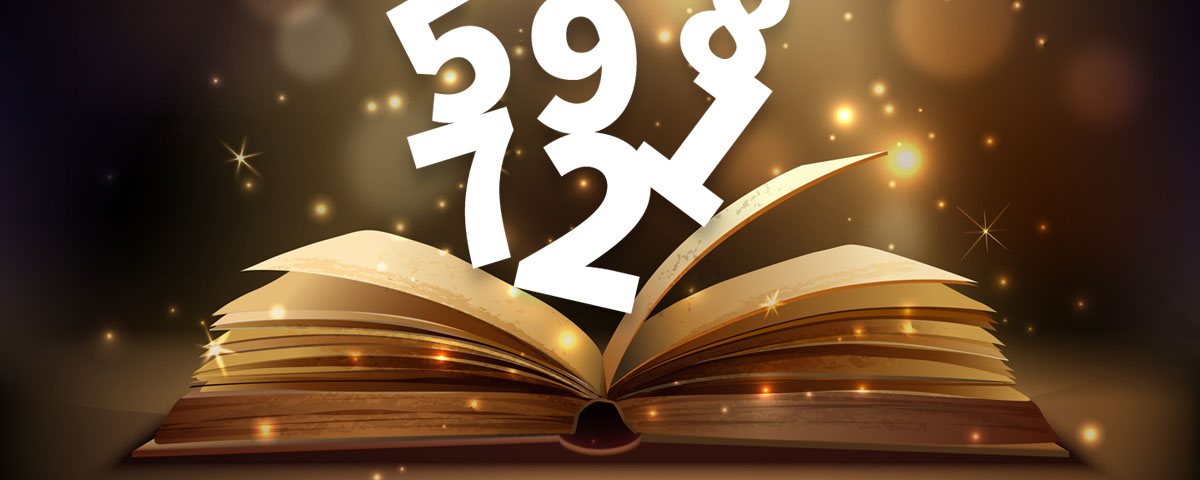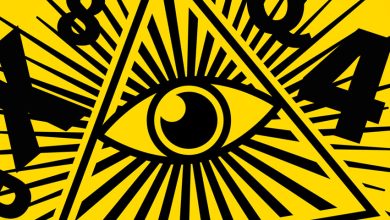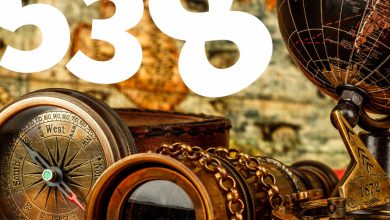A QUICK HISTORY OF NUMEROLOGY
The study of numerology has quantifiable significance for people all over the world, and civilization has been mystified by its origins for thousands of years. Numerology is considered a branch of study having a significant connection with numbers and the occult. Within this study, numbers are considered a powerful symbolic expression that affects all aspects of nature, technology and the divine.
HISTORY

Scholars recognize Egypt and Babylon as the birthplace of numerology; however, its modern day origins are credited to the Greek philosopher, Pythagoras.
Renown as one of the most skilled mathematicians, the information that is known regarding his history and life, is often taught to high school students. He and other philosophers of the era believed that mathematical concepts were more sensible than physical ones, thus, having greater authenticity. The history of numerology cannot be discussed without mentioning his efforts.
During his middle age, he opened a school that was highly secretive. While teaching there, he began focusing solely on understanding the principles behind mathematics. He felt that all things in the universe were made and could be expressed through numbers, and that everything had a numerical relationship. Though, he didn’t create numerology, his theories were expanded by other philosophers, and are considered the platform for modern day numerology.
Pythagoras and later St. Augustine of Hippo, believed that numbers could be a universal language that could be revealed by a divine power if you sought the truth behind them.
Around approximately 325 AD, after the First Council of Nicaea, believing or seeking ideas that differed from the state of the church were considered civil violations against the Roman Empire. Christian authorities frowned upon the belief and investigation of numerology. A religious eradication caused the surge in interest to decline.
MODERN DAY
Modern day numerology has various branches that were discovered and made famous by several numerology students, but the most important of those are arguably L. Dow Balliett and Dr. Juno Jordan.
A student to teacher relationship between L. Dow Balliett and Dr. Juno Jordan changed numerology into what we recognize today. L. Dow Balliet added and interesting twist by combining biblical references to Pythagoras’ older works. Pushing the envelope even further, Balliet’s student, Dr. Juno Jordan, created the system best known today as “Pythagorean”.
Dr. Jordan’s book, The Romance in Your Name, offered a unique system that provided a key to interpreting the numerological representation of your name, birth date and other important times. Jordan’s work began to correlate names to numbers and how they relate to all aspects of life, including love and relationships. This foundation is the same that we used today.
Related topic:
- Discover the Infinite Power of Numerology
- Birthday Numerology: Hidden Meanings of Your Birth date
- Guide To Numerology Love Compatibility
- Name Numerology Meanings: Secrets of Your Name
TODAY
Various other numerologists had a hand in the understanding we have today. A few of those are Florence Campbell, David Stove, Lynn Buess, Kathleen Roquemore and Mark Gruner. They branched off into different schools of thought (often conflicting), and created and expanded their predecessor’s ideas.
Thanks to the mathematicians who were willing to think outside the box, we have various numerical tools that help us assess different types of personalities and events.
Source: https://numerologybox.com
Category: Numerology





